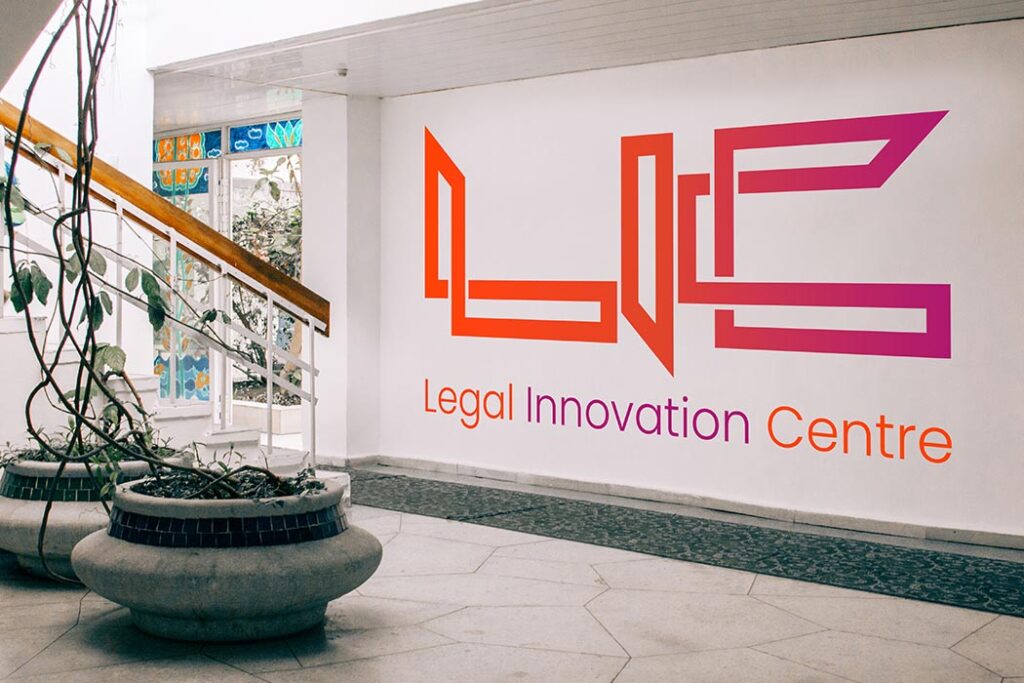FARKAS LAW
The Importance of Delegation for Lawyers and Law Clerks.
In the fast-paced legal world, time is one of your most valuable assets. Yet, many legal professionals especially solo practitioners or small firm teams struggle with letting go of tasks they feel only they can handle. The result? Burnout, missed opportunities, and decreased efficiency.
Delegation isn’t about giving up control—it’s about maximizing impact.
For lawyers, effective delegation means trusting law clerks, legal assistants, and support staff with tasks that align with their skills. From document drafting and legal research to scheduling and client follow-ups, assigning the right task to the right person frees up time to focus on strategy, client advocacy, and court appearances.
For law clerks, being entrusted with more responsibility builds confidence, sharpens legal skills, and fosters professional growth. It’s a win-win for team morale and firm productivity.
Here’s why delegation is essential:
✔️ It reduces bottlenecks and improves turnaround times.
✔️ It helps avoid burnout and promotes better work-life balance.
✔️ It empowers junior team members and supports mentorship.
The key? Clear instructions, regular check-ins, and a culture of trust.
Delegation isn’t a weakness, it’s a leadership skill. And in law, where every minute counts, it’s one of the smartest moves you can make.
Billing Best Practices: How to Get Paid on Time
In the fast-paced business world, timely payments are crucial to maintaining healthy cash flow. For service-based industries and businesses that rely on regular billing, establishing effective billing practices is essential. Below are some billing best practices to ensure that you get paid on time, helping to streamline your financial processes and reduce stress.
1. Set Clear Payment Terms from the Start
When entering into a new business relationship, setting clear and transparent payment terms is key. Outline when payment is due, the accepted payment methods, and any late fees or penalties. Whether it’s Net 30, Net 60, or another arrangement, make sure both parties are on the same page from the get-go. Having a written agreement that covers all payment details helps avoid misunderstandings later.
2. Invoice Promptly
Don’t wait too long to send invoices. The sooner you send them, the sooner you can expect payment. Aim to send invoices immediately after providing your service or delivering goods. This will also help maintain a steady cash flow and ensure that you don’t forget any details about the project. Use invoicing software to speed up this process, which also allows you to track sent invoices.
3. Make Invoices Clear and Easy to Read
A complicated invoice can confuse your clients and delay payment. Be sure to provide a detailed breakdown of the services rendered or products sold, along with pricing, taxes, and the total due. Include your payment terms and due date, and provide your payment details clearly. The simpler and more professional your invoices, the less likely there will be delays in payment.
4. Leverage Technology
Automating invoicing through cloud-based software can save you time and reduce the risk of errors. Many tools allow you to set up recurring billing, automate payment reminders, and even send overdue notices. Some platforms also integrate with payment gateways to make it easier for clients to pay online, speeding up the entire process.
5. Offer Multiple Payment Options
Providing your clients with several payment options can improve your chances of receiving payments on time. Whether it’s credit card payments, bank transfers, PayPal, or even ACH payments, make it as easy as possible for them to settle their invoices. The more convenient you make the payment process, the quicker you’ll get paid.
6. Follow Up on Overdue Invoices
Sometimes, clients may forget or delay payments, so it’s crucial to have a system in place to follow up on overdue invoices. A friendly but firm reminder a few days after the due date can prompt them to make the payment. Be consistent in your follow-ups but remain professional and respectful in your communication.
7. Offer Early Payment Discounts
Incentivizing your clients to pay earlier than the due date can be a powerful motivator. Offering a small discount, such as 2% off the total if paid within 10 days, can encourage early payment and improve your cash flow. This is a win-win for both parties: you get paid quicker, and the client gets a discount.
8. Implement Late Fees
Including late fees for overdue payments is one of the most effective ways to motivate clients to pay on time. Make sure your clients are aware of this policy from the beginning, and apply it consistently. Late fees should be clearly stated in your contract and invoices, but avoid being overly punitive.
9. Build Relationships with Clients
Having a strong, positive relationship with your clients increases the likelihood of them prioritizing your invoices. Open, honest, and professional communication fosters trust and can prevent payment delays. If there is an issue with payment, a conversation can help resolve it before it becomes a major problem.
10. Know When to Outsource Collections
If your invoices remain unpaid despite your efforts, it may be time to consider outsourcing collections. Working with a collections agency or legal professional can help recover overdue payments while keeping your relationship with the client intact.
Reinventing the legal framework
Dezso Farkas
The significance of a man’s prestige is a collective reflection of all his attributes. Dezso Farkas is a man of many attributes. Apart from being a law practitioner and an entrepreneur who helps start-ups, Dezso is responsible for the conception of Wolf Law Chambers. The chambers, described as a multi-disciplinary law practice, is an innovative approach to providing a workplace where legal professionals can seek support and resources, while maintaining their status as a singular entity.
Educational Background
Dezso graduated with a BA Honours degree from York University and then went on to earn his Master of Laws (LLM) degree (specializing in Corporate Governance) and a Juris Doctor (JD) degree, both from Osgoode Hall Law School, York University. Soon after he was called to the Bar and currently, he is licensed to practice as a Barrister & Solicitor in the Province of Ontario.
Apart from periodically visiting the courthouse, Dezso made time to publish several articles in the prestigious Delaware Journal of Corporate Law, Transnational Legal Theory Journal and the London Review of International Law. On a certain occasion Dezso also served with the Institute for Global Law and Policy at Harvard Law with his expertise on the legal side.
Professional Ventures
The scope of Dezso’s abilities is not just limited to law. On top of being a real-estate entrepreneur with considerable experience in the field, in the past Dezso has also acted as a director of the Reliant Gold Corp., a publicly traded junior mineral resources company.

Farkas Law “Business Lawyers”, the independent law firm chaired by Dezso Farkas, caters to the needs of small and medium-sized business clients. The self-description of the firm is stated as a body of “Business Lawyer” with an aim to provide customized legal services, guidance and trusted advice for business ventures of all kinds. Currently the clientele of Farkas Law includes start-ups, commercial landlords, real-estate developers, manufacturing companies, non-profit organisations and small business owners. The firm acts as an external “in-house” corporate counsel to save their valuable resources and focusing them towards successful outcomes.
Dezso’s substantial history of merit is a result of his personal ideology which can be better expressed by himself:
I believe in continuous professional growth and I am committed to gaining new knowledge and experience to better serve the needs of my clients.
Dezso Farkas

Vision
Ideally lawyers are intended to be a means of resolving problems for their clients. Sadly, not all lawyers are attuned to the needs of their clients. For Dezso Farkas, the motivation to become a lawyer came from his own unsavory past experience. As a young entrepreneur, Deszo encountered some obstacles and to resolve them he obviously pursued legal assistance; unfortunately, he got saddled with a ‘disengaged’ lawyer. At this point Dezso realized how detached lawyers are to the ideology of young entrepreneurs. Back then, if he had been a lawyer, he definitely could have handled his case more efficiently, he realized that going into law practice could be a real opportunity for him to help people.
Young entrepreneurs have no idea of the trouble they might get into when they are starting out. Its not possible for them to know everything about the line of commerce they are about to enter on their own. The consequences of their natural ignorance can sometimes be dire. Consequently, it is more complicated to undo a problematic situation than to avoid it in the first place.
Nevertheless, if an entrepreneur seeks the right advice from the very beginning, there’s no reason for them to get into trouble. According to Dezso, the biggest complaint he hears from his clients is that other lawyers don’t understand their clients’ businesses. Dezso on the other hand wants to understand his clients’ businesses and perspectives. He has a desire to leave people better than when they first came to him seeking a solution to their problems. In his own words, Dezso wants to be ‘Their Trusted Advisor’.
Wolf Law Chambers

Not all lawyers have the innate ability and the right personality to make it as sole practitioners. Lawyers who possess such qualities cannot work under others for long and can only thrive when they work for themselves. However, when these lawyers enter the domain of sole practice, they face a multitude of unique challenges they are not ready for. Support is non-existent as a result of their isolation and limited networking opportunities. The Law Society provides certain resources, to help solo firms stay compliant, but they have no avenue of providing any personalized advice in light of the ever-evolving business landscape to individual lawyers. In terms of modern-day workspace flexibility, the options for a lawyer on his own are very limited. Sometimes it becomes practically impossible for them to go out and search for law-based developmental resources to further their practice.
To Dezso the idea behind the creation of Wolf Law Chambers came as a solution to all the problems discussed above, which are being faced by lawyers. The services available at Wolf Law Chambers are uniquely targeted for law professionals, in order to allow them to grow personally in their sphere. The networking opportunities at Wolf Law Chambers are incredibly advantageous for sole practitioners. All the available resources, connections and events, allows lawyers to seek counsel from others in their profession, without any prejudice and with the purpose of benefiting each other. All of this is being carried out by lawyers at Wolf Law Chambers, while retaining their status as owners of their own law firms.
All lawyers should seek every opportunity they can to enhance their practice.
Dezso Farkas
Future

For Dezso Farkas, the future is just as promising as his present. He’s already planning to launch his upcoming project; the Legal Innovation Centre. Legal Innovation Centre will act as a ‘technology incubator’ to mentor start-ups in areas of legal research and development. According to Dezso, currently technology start-ups in the GTA West area are facing many challenges. There is a definite need for a facility like Legal Innovation Centre. The center will alleviate issues using their 3-step assistance plan; finding funding programs, providing a collaborative space and introducing start-ups to an already established network of industry experts. Legal Innovation Centre will focus resources on technological innovations which aim to shape the legal industry.



